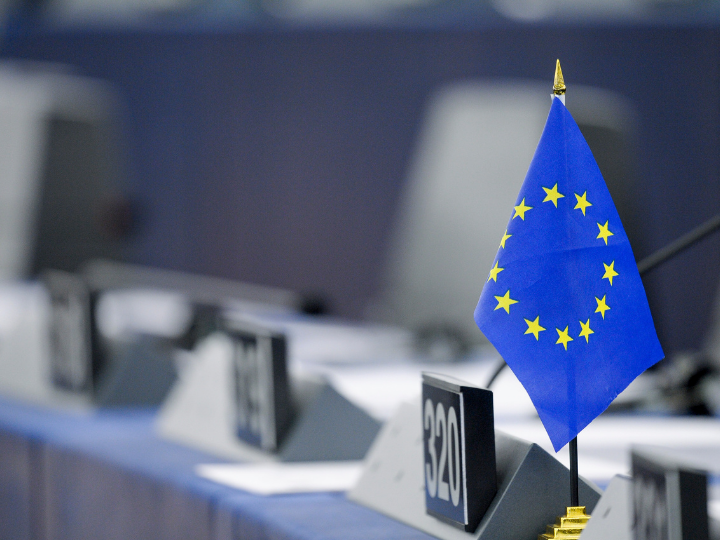by Giles Merritt*
It is commonplace to say the European Union lacks strategic thinking. It responds reasonably well to immediate crises, but stumbles to find a clearcut approach to longer-term challenges. Assailed now by unwelcome developments both at home and abroad, the EU seems rudderless and without clear direction.
There have been two illustrations of this in recent weeks. Foreign policy chief Josep Borrell’s unhappy Moscow trip showed not only that the EU has no new policy for dealing with Putin’s Russia, but also that it never had one.
And then there’s Covid-19. The delayed rollout of coronavirus vaccines was only a tactical hiccup; much more serious is the EU’s failure to propose a strategic approach. Its €750 billion economic recovery plan is one thing, but where are ideas on vaccine passports, greatly strengthened joint research and concerted measures to head-off future pandemics?
The European Union has muddled along on key questions for the past quarter-century
That’s just on the health front, which was never an EU priority. More worrying is the lack of long-term policymaking in other vulnerable areas. Strategic thinking isn’t the EU’s strong suit; the Commission’s track record is as a formidably efficient regulatory and administrative machine that is far happier with detailed dossiers than imaginative ‘Wide Screen’ concepts.
EU governments have encouraged this. They, and especially those of the larger member states, resist attempts by Brussels to forge strategic initiatives. That’s down to a reluctance to cede new powers to the EU, and because they themselves are often too divided to agree a common policy.
As a result, the European Union has muddled along on key questions for the past quarter-century. The welcoming in of a dozen new members diverted attention from such significant failures as the incomplete state of the single market, notably in areas like financial services and public procurement. Although the eurozone weathered the sovereign debt crisis a decade ago, the single currency still lacks vital political underpinnings.
International consensus agrees that the world is on the threshold of major changes
Above all, the EU has been unable to fashion foreign policies beyond trade that adequately equip Europe to confront globalisation’s growing pressures and heightened risks of geopolitical turmoil.
These are chiefly criticisms of the Union’s member states, rather than of its institutions. Yet there’s no denying that the present Commission, like its predecessors, has been reluctant to sound the alarm and present a strategy document that ventures beyond cliches.
The present Commission called itself ‘geopolitical’, but has yet to set out for debate strategies that could guide the EU’s dealings with China, Russia and even the United States. Or for re-thinking development aid and CAP-related farm trade policies in the context of Covid-19.
International consensus agrees that the world is on the threshold of major changes, even if no one can say what these may be. That’s why the EU must start to ‘Think Big’. Trump’s presidency has been a wake-up call to the inherent unreliability of the US as a multilateral partner. The concessions made to China as a developing economy are also being reconsidered. Fresh opportunities are opening up for Europe if it chooses to seize them.
Paris, rather than Berlin or London, has over the years been the chief source of new thinking on Europe’s future
First, however, the EU has to level with European citizens about the extent of Europe’s weaknesses. Disastrous demographic decline urgently demands policies to boost birthrates in southern and eastern member states. That means far more ambitious and expensive economic cohesion policies, and revolutionary thinking on common tax measures. In short, an uncomfortably controversial agenda that politicians must embrace collectively.
It is going to take guts to spell out this sort of strategic thinking to EU electorates already battered by the coronavirus lockdowns. Whether Commission president Ursula von der Leyen has the appetite for conflict remains to be seen. It may instead fall to French president Emmanuel Macron to take up the cudgels next year when his country has the revolving six-month presidency of the EU Council of Ministers.
Paris, rather than Berlin or London, has over the years been the chief source of new thinking on Europe’s future. Its renewed intellectual vigour, and a strong injection of political courage, would do much to set the EU onto a course away from global irrelevance. It would also end years of sterile talk of a “new narrative” as the solution to the European Union’s problems.
*Founder, "Friends of Europe"
**first published in: www.friendsofeurope.org




 By: N. Peter Kramer
By: N. Peter Kramer
